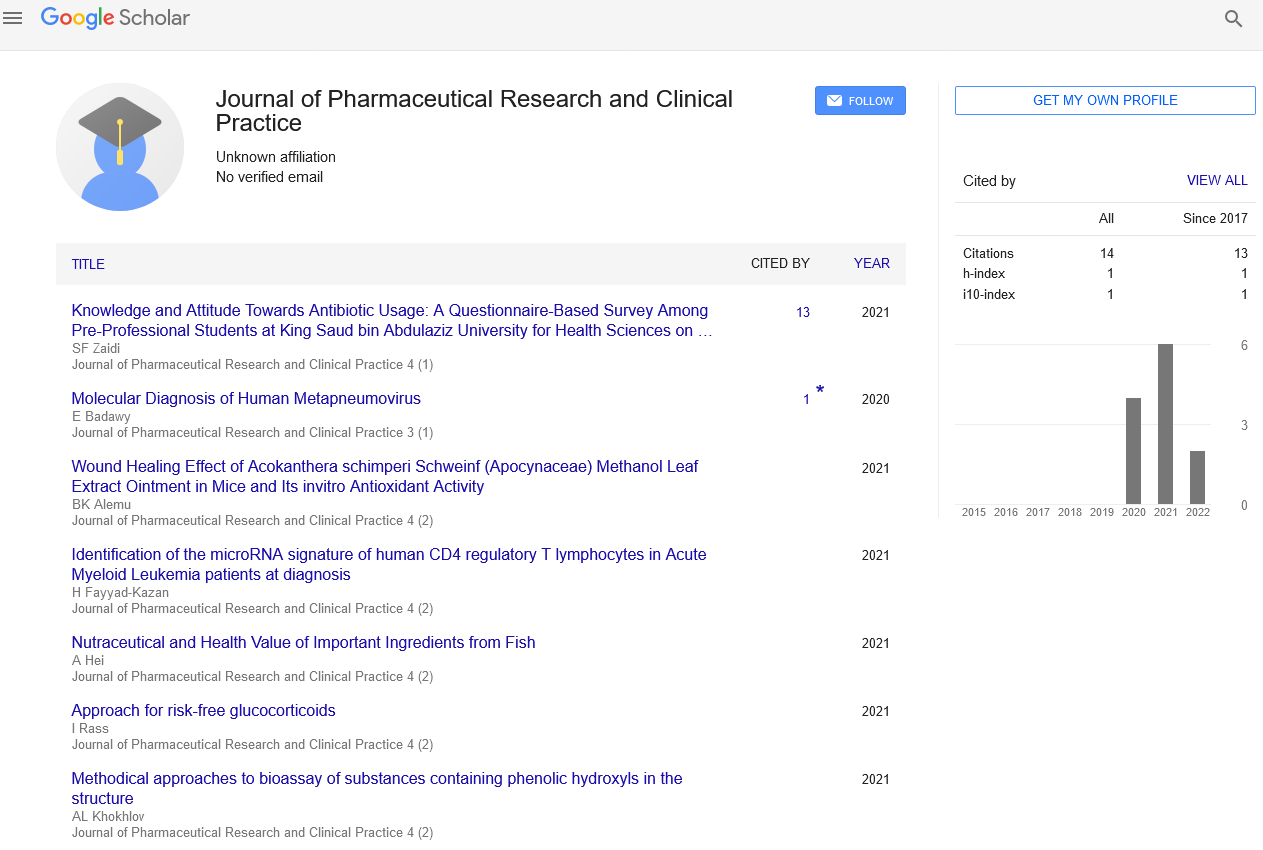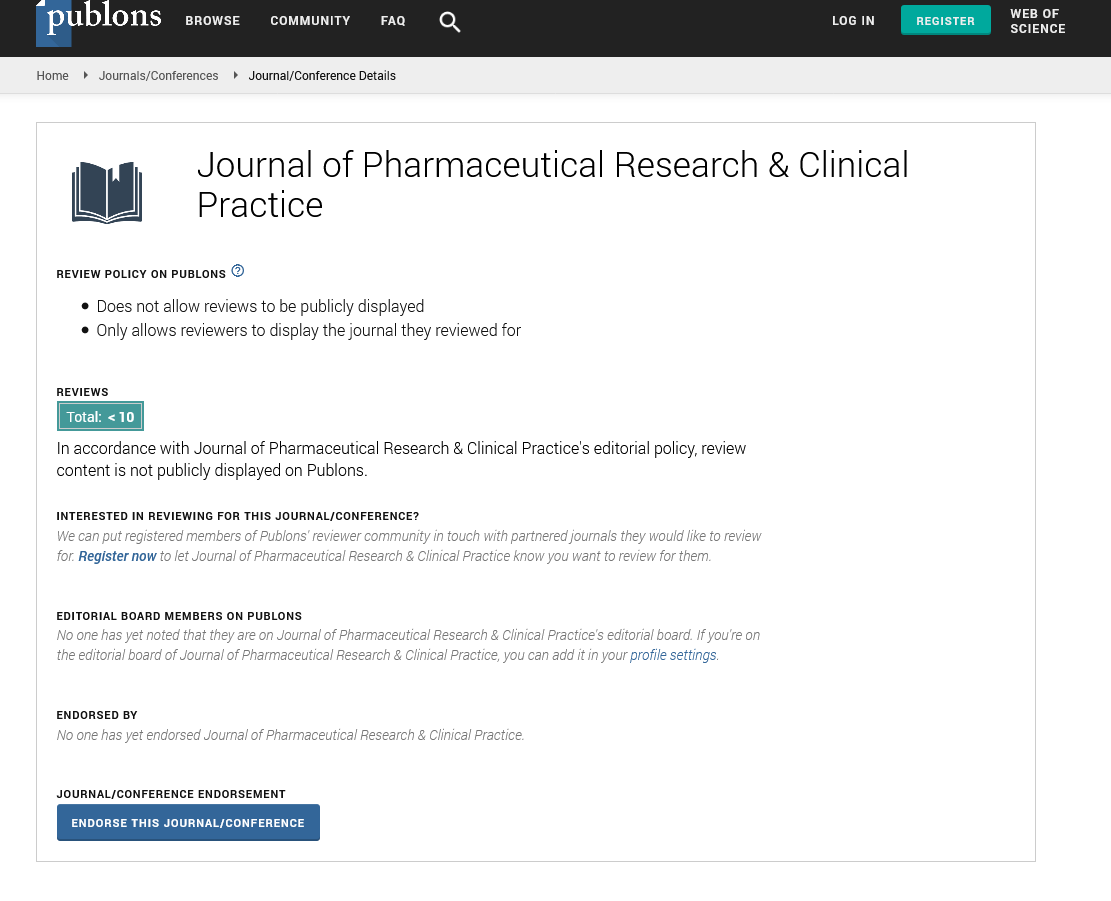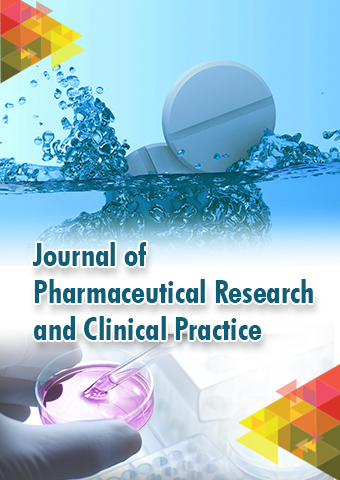Commentary - Journal of Pharmaceutical Research and Clinical Practice (2021) Volume 4, Issue 4
Roles of Pharmacy and its Various Exposures in Today's World
- Corresponding Author:
- Alexandra Alice Department of Chemistry, University of Los Angles, USA E-mail: alice@123.com
Abstract
Commentary
Compounding pharmacy/industrial pharmacy
Compounding involves preparing medicines in forms that are different from the general tradition standard. This may include altering the strength, constituents, or lozenge form. Compounding is a way to produce custom medicines for cases who may not be suitable to take the drug in its standard form, similar as due to an mislike or difficulty swallowing. Compounding is necessary for these cases to still be suitable to duly get the conventions they need. One area of compounding is preparing medicines in new lozenge forms. For illustration, if a medicine manufacturer only provides a medicine as a tablet, a compounding druggist might make a treated lollipop that contains the medicine. Cases who have difficulty swallowing the tablet may prefer to stink the treated lollipop rather.Another form of compounding is by mixing different strengths (g, mg, mcg) of capsules or tablets to yield the asked quantum of drug indicated by the croaker, croaker adjunct, nanny guru, or clinical druggist guru. This form of compounding is plant at community or sanitarium apothecaries or in- home administration remedy. Compounding apothecaries specialize in compounding, although numerous also apportion the samenon- compounded medicines that cases can gain from community apothecaries.
Consultant pharmacy
Adviser drugstore practice focuses more on drug authority review ( i.e.”cognitive services”) than on factual allocating of medicines. Adviser druggists most generally work in nursing homes, but are decreasingly raying into other institutions andnon-institutional settings. Traditionally (where?) adviser druggists were generally independent business possessors, however in the United States numerous now work for a large drugstore operation company similar as Omnicare, Kindred Healthcare or PharMerica. This trend may be gradationally reversing (citation demanded) as adviser druggists begin to work directly with cases, primarily because numerous senior people are now taking multitudinous specifics but continue to live outside of institutional settings. Some community apothecaries employ adviser druggists and/ or give consulting services. The main principle of adviser drugstore is developed by Hepler and Beachfront in 1990.
Veterinary pharmacy
Veterinary apothecaries, occasionally called beast apothecaries, may fall in the order of sanitarium drugstore, retail drugstore or correspondence- order drugstore. Veterinary apothecaries stock different kinds and different strengths of specifics to fulfill the medicinal requirements of creatures. Because the requirements of creatures, as well as the regulations on veterinary drug, are frequently veritably different from those related to people, in some authorities veterinary drugstore may be kept separate from regular apothecaries
Nuclear pharmacy
Nuclear drugstore focuses on preparing radioactive accoutrements for individual tests and for treating certain conditions. Nuclear druggists suffer fresh training specific to handling radioactive accoutrements, and unlike in community and sanitarium apothecaries, nuclear druggists generally don’t interact directly with cases
Specialty pharmacy
Specialty apothecaries supply high- cost injectable, oral, invested, or gobbled specifics that are used for habitual and complex complaint countries similar as cancer, hepatitis, and rheumatoid arthritis. Unlike a traditional community drugstore where conventions for any common drug can be brought in and filled, specialty apothecaries carry novel specifics that need to be duly stored, administered, precisely covered, and clinically managed. In addition to supplying these medicines, specialty apothecaries also give lab monitoring, adherence comforting, and help cases with cost- constraint strategies demanded to gain their precious specialty medicines. In the US, it’s presently the swift- growing sector of the pharmaceutical assiduity with 19 of 28 recently FDA approved specifics in 2013 being specialty medicines.


